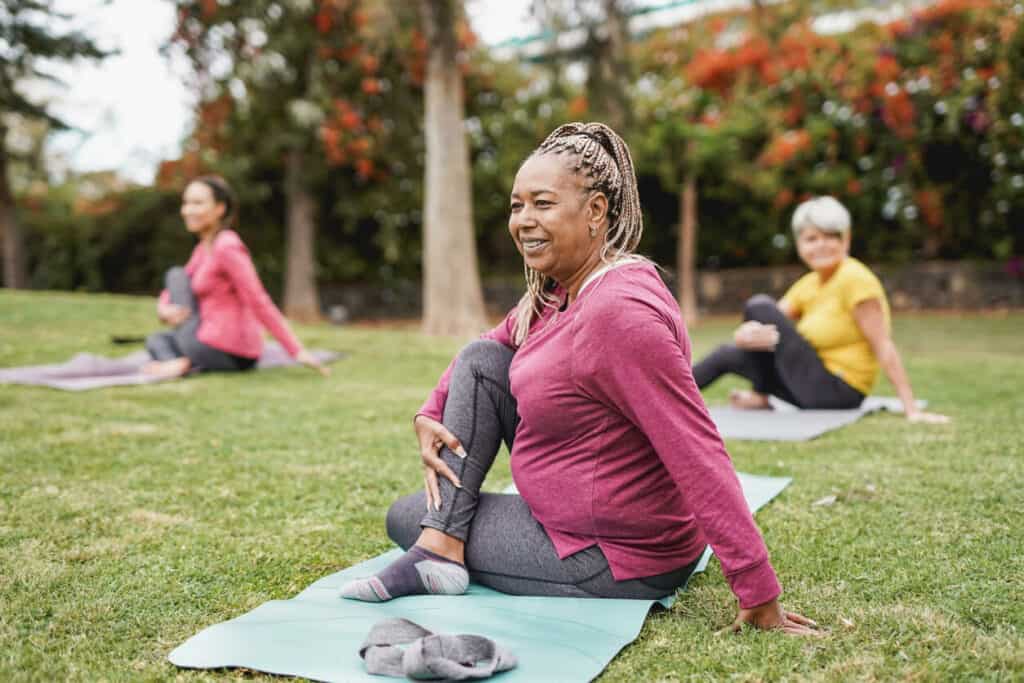
Exercise is a lifestyle choice to elevate seniors’ health. At least half an hour of brisk walking or a session at the gym can tremendously improve the quality of life of older adults with illnesses, limited mobility, and mental health problems. The benefits of exercise for older adults have a profound impact on their life. That’s why care providers recommend it as a supplementary daily routine. It’s a treatment without the side effects of medications.
The seniors’ overall health management often falls within the caregivers’ capable hands. They’re people who supervise, monitor and play a part in the recovery journey of many seniors. Working with them ensures that your loved one receives proper care and is on the right track with their health goals.
Physical Benefits of Exercise for Seniors
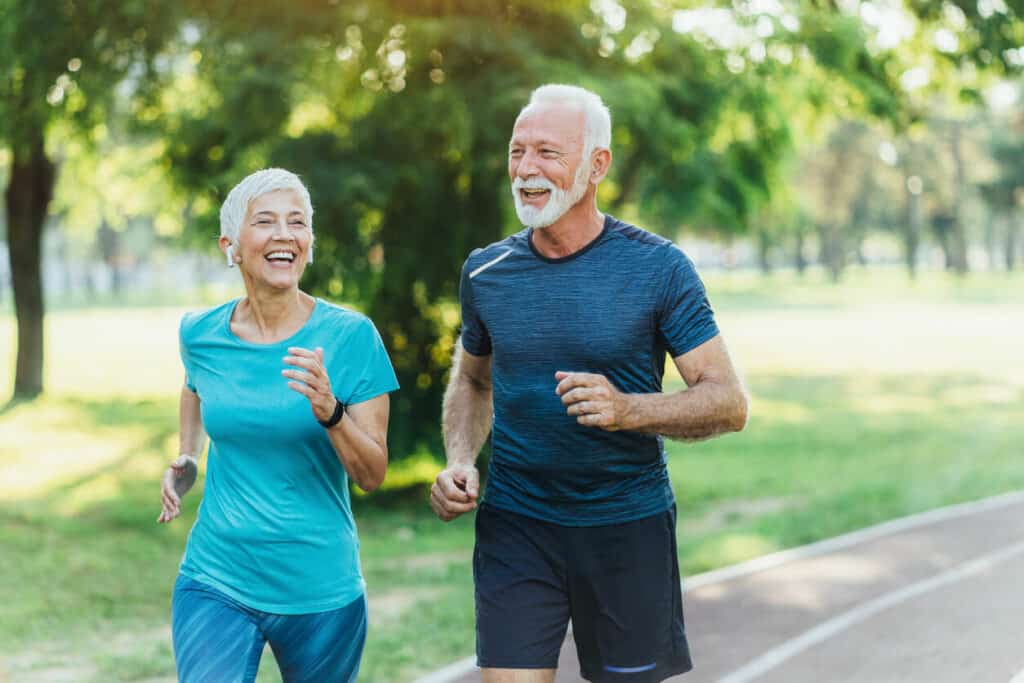
All forms of exercise have physical and psychological health merits to your senior relative. Here are the positive effects of an active lifestyle on the body.
Improved strength
Lunges, squats, and push-ups help build muscles in multiple body areas so your loved one can easily do activities that require strength. Strength training exercises are suitable for rebuilding muscle strength and mass and preserving bone density.
Mobility
Activities that include body twists and rotations can expand the range of movement and improve flexibility. They slow the deterioration of the joints and promote good posture in old age.
Balance
Regular physical activity can tone muscles and joints to support standing, walking, and other types of body movements. Training your loved one to maintain their overall body balance at any position can reduce the risk of falls and slips.
Reduced risk of chronic conditions
Cardio or aerobic exercises like walking and dancing boost heart health, and can minimize or prevent the chances of acquiring long-term cardiovascular diseases.
The wear and tear on the body due to old age brings different challenges. For this demotivating reason, many seniors don’t respond well to the idea of exercise. Hence, hiring a caregiver is advantageous because they can encourage your loved one to join exercise programs suited to your loved one’s current level and ability.
They can also offer transportation to and from the gym or exercise venues. More importantly, they can monitor your loved one’s health progress and provide education on using mobility devices.
Mental and Emotional Benefits of Exercise for the Elderly
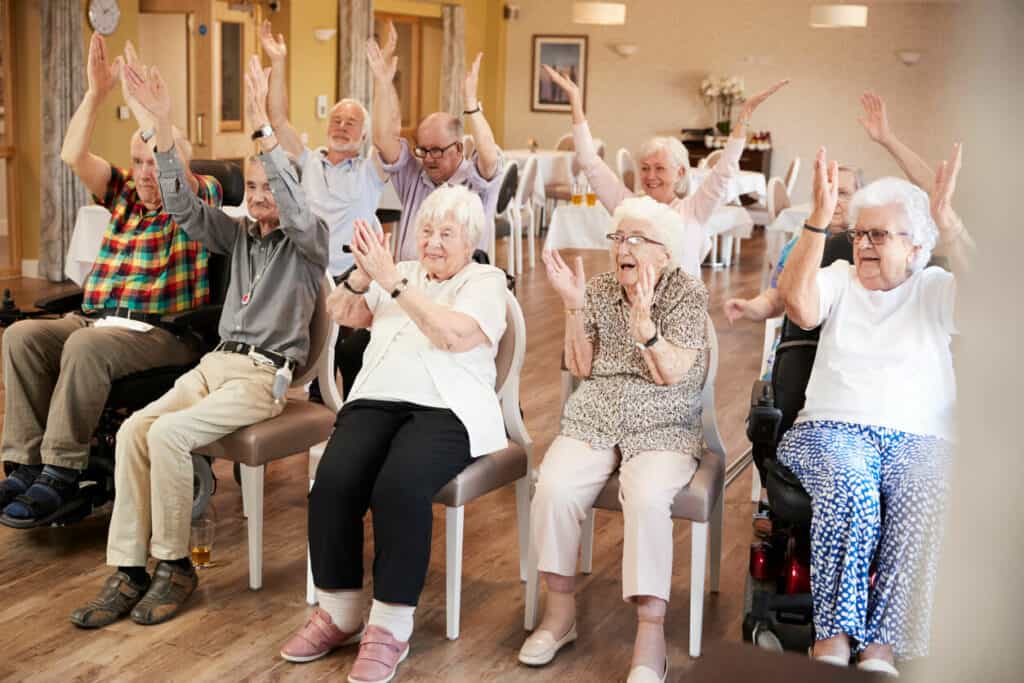
Engaging in heart-pumping activities has a substantial effect on mental and emotional health. The benefits include:
Improved mood and self-esteem
Fitness activities increase the production of endorphins, a hormone associated with better mood and altered perception of pain. With regular exercise, your loved one’s threshold for pain increases.
Reduced stress and anxiety
One of the life-changing benefits of exercise for older adults is it keeps stress, anxiety, and depression at bay. Many older people do active mindfulness practices like yoga and pilates to feel calm and wind down from life’s daily stresses. Any form of movement activity provides stress relief, and as well improves sleep.
Improved cognitive function and memory
Exercise is also good for brain health and mitigates the probability of dementia. It increases the blood flow to the brain to promote cognitive health.
Caregivers fit in the puzzle by providing emotional and social support to your loved one. Since mental health problems are prevalent among the elderly, a private caregiver can help minimize the risks of psychological problems by adding exercise to your loved one’s lifestyle. Companionship care is another significant health benefit they can provide to your loved one.
Overcoming Barriers to Exercise for Seniors
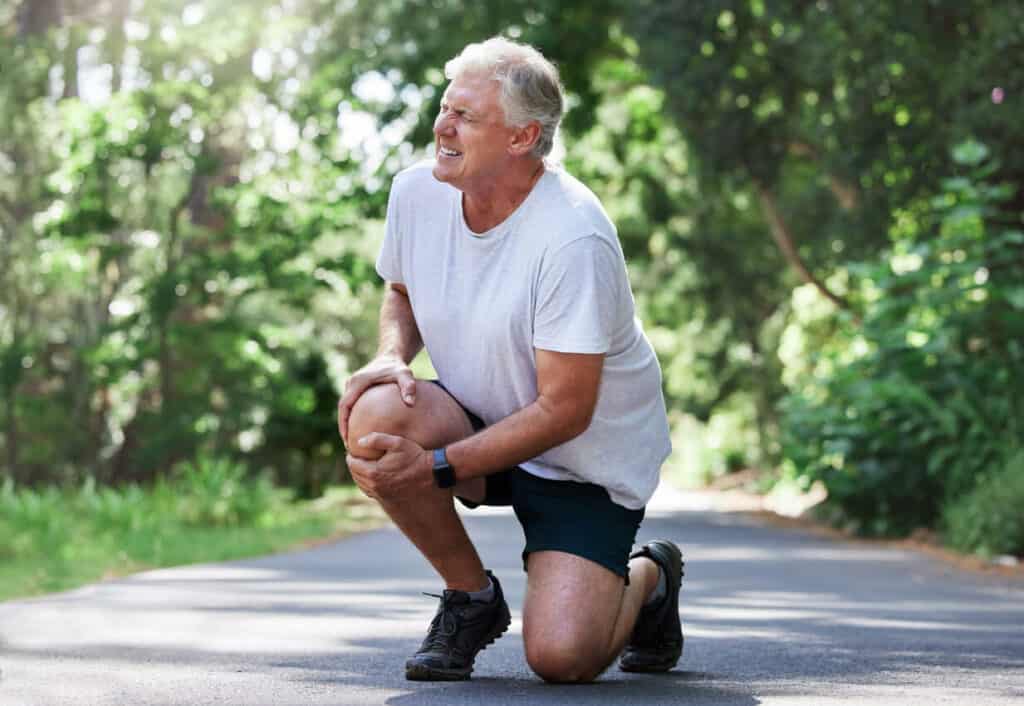
Regardless of the radical benefits of exercise for the elderly, many seniors skip it as they encounter several obstacles.
- Physical limitations: Aging can decrease the range of motion, so many seniors find it challenging to move their bodies flexibly. They may be unable to rotate their shoulders and hips in full range or stand on one foot to maintain their balance. It dampens their motivation to exercise.
- Lack of motivation: The underlying causes for this are often pain and isolation. Each move may cause pain, making it hard for them to stay motivated in any exercise activities. As a consequence, many seniors tend to withdraw, which ultimately leads to a sedentary lifestyle.
- Financial constraints: Seniors requiring occupational therapy and personalized care to rehabilitate from an injury often pay out of pocket. Some of these services are expensive, hindering seniors from participating in activities.
Strategies for Overcoming These Obstacles
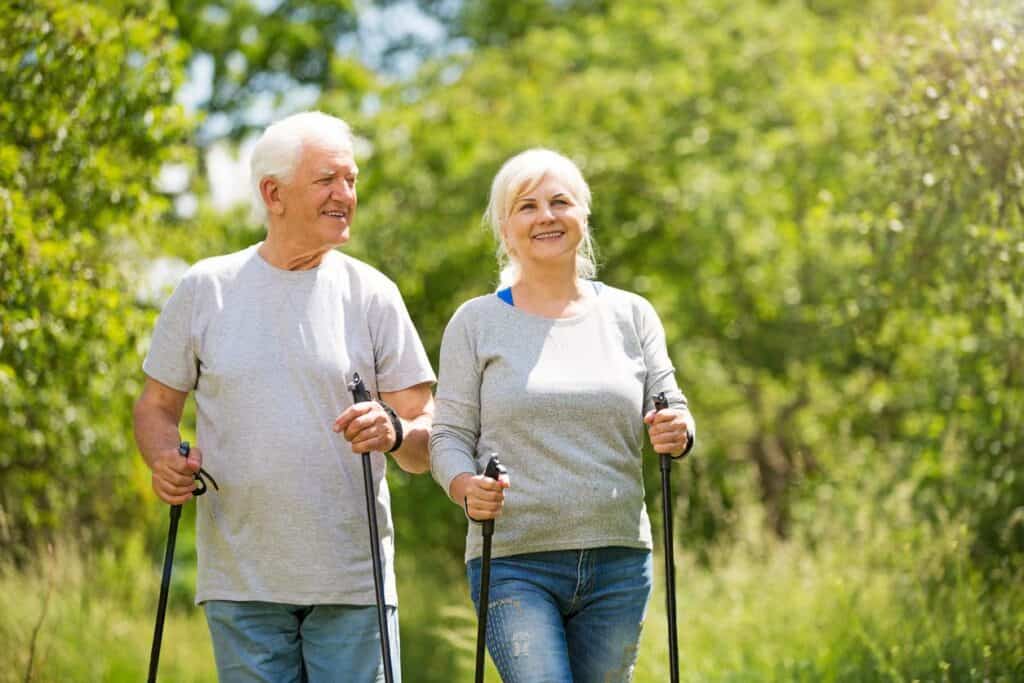
Every barrier to exercise has a corresponding solution. Here are some techniques to try if any of these obstacles stop your loved one from being active senior citizens and living a vibrant retirement life.
- Adaptive exercise programs
Your family doctor and a physical therapist can customize exercise routines based on your loved one’s ability, health situation, and needs. In case of a disability, the doctor will tailor-fit the fitness program based on what your relative is capable of doing.
- Social support
You can hire a caregiver to be your loved one’s exercise buddy or enroll them in social exercise programs at a local senior center or adult daycare. Exercising with other older people makes them feel supported. It makes exercise an excellent social event to make friends.
- Financial assistance
Various federal- and state-funded programs can reduce some of your parent’s living costs so they can allocate more resources for their therapy. Some examples are Meals on Wheels, Medicare and Medicaid.
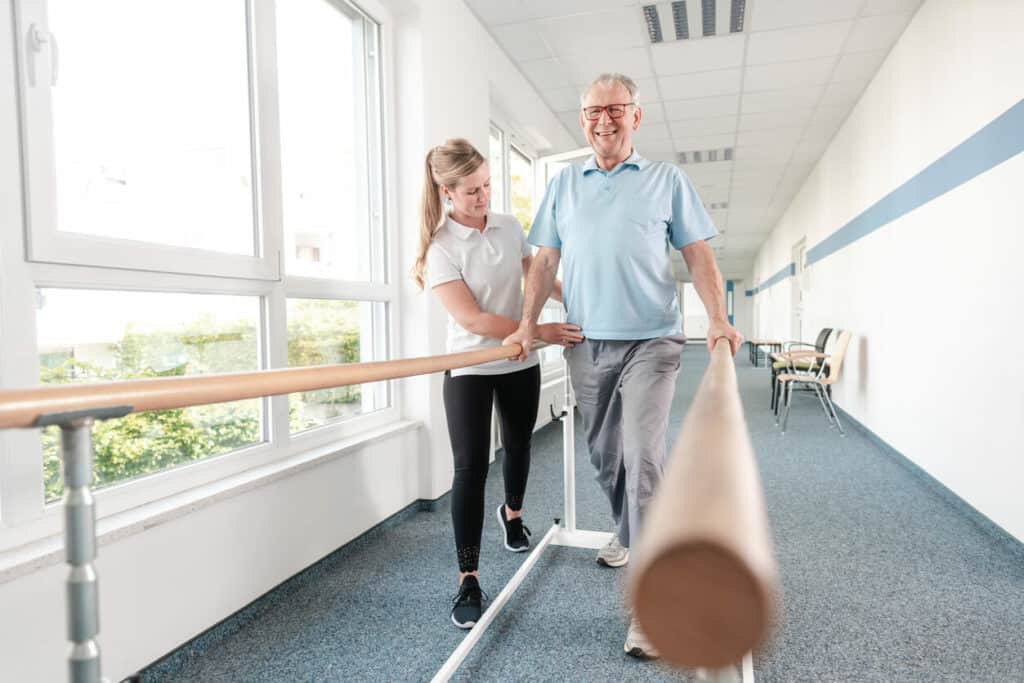
If you work with a senior caregiver, you get access to all of their expertise and knowledge. They can assess your loved one’s needs, including what factors hinder them from doing their morning exercise.
For instance, maybe your senior mom doesn’t exercise because she doesn’t feel motivated to do it alone. Your caregiver can help them find and enroll in appropriate exercise programs that they like. If your loved one wants to try yoga, they can assist in finding yoga classes within the city.
Moreover, your caregiver can also help you navigate various funding options and secure information on the eligibility requirements of each program for older adults. You will have more choices to gain financial support to help sustain long-term care needs.
Making Regular Exercise a Daily Habit
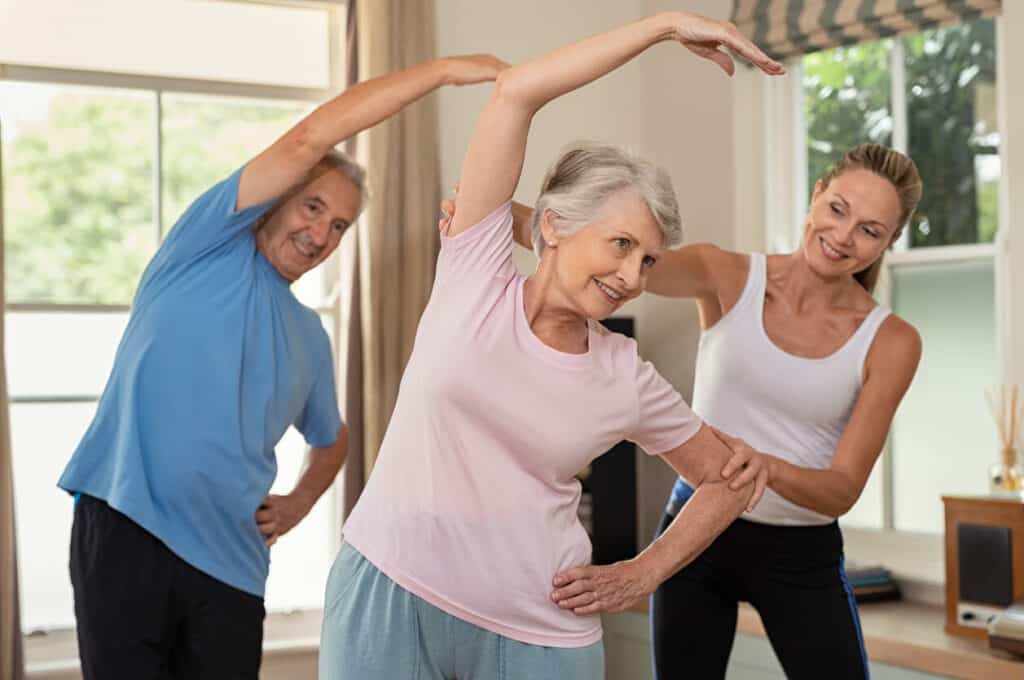
The benefits of exercise on aging are tremendous and encompass physical, emotional, and mental health. It can strengthen the bones and muscles, boost mobility and balance, and reduce the risk of many chronic diseases. Its psychological benefits include better mood, lower stress and anxiety levels, and enhanced cognitive skills. Embracing an active physical lifestyle is one of the keys to optimal well-being.
All of these health merits of exercise don’t come with any side effects. So it’s a sound choice to incorporate it into your loved one’s routine and make it a habit. If you need help, a senior caregiver can guide your loved one to become active senior citizens, improve their habits, and supervise their progress. Give us a call if you need the help of a dedicated caregiver.




